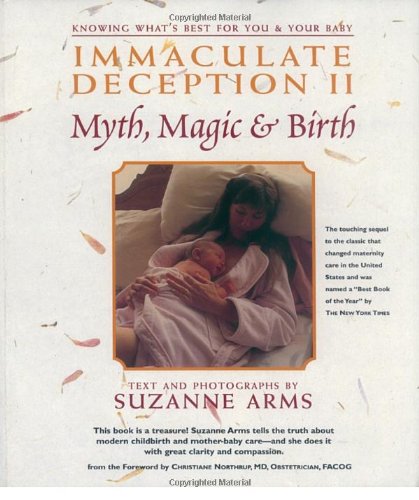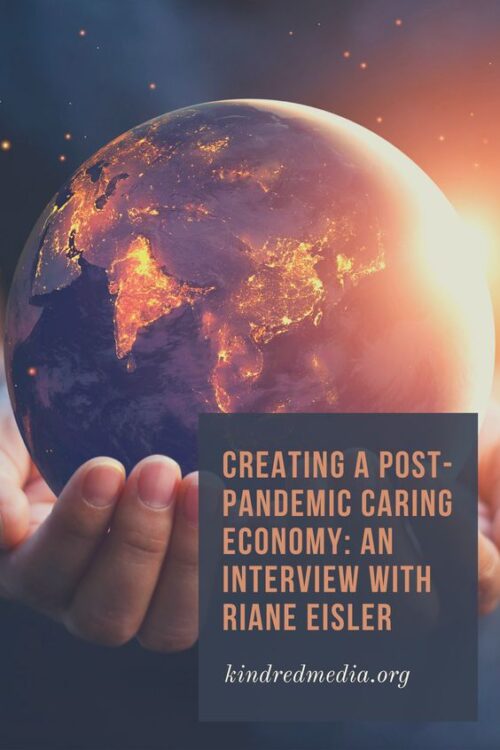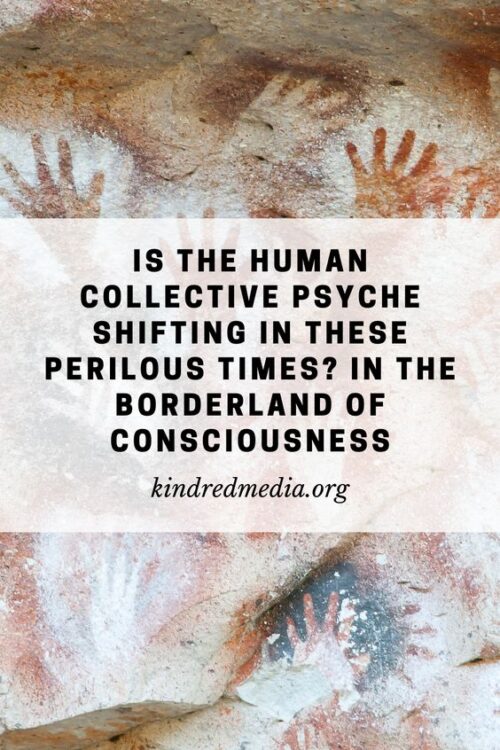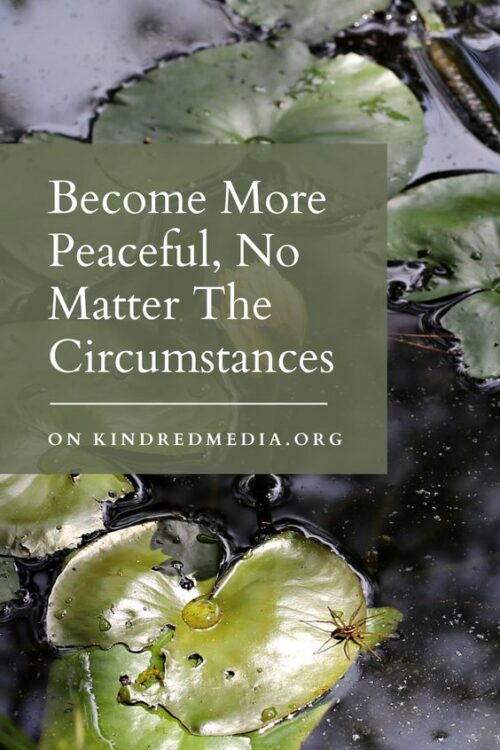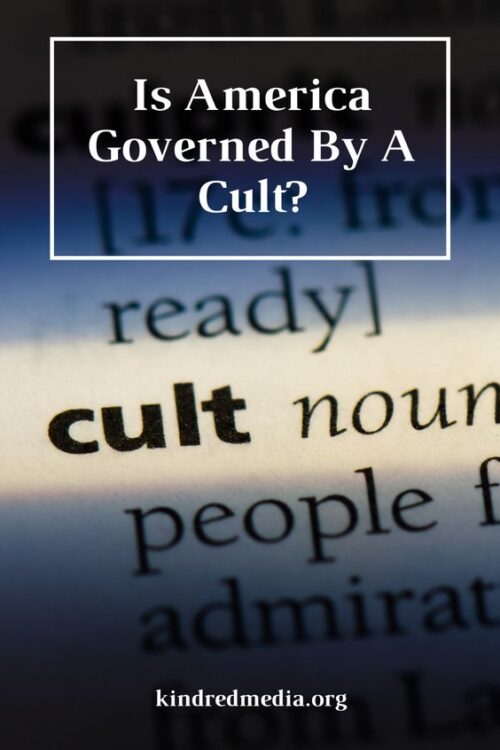The Life of a Social Activist This Election
Late afternoon on a lovely autumn day I went to our now open public rec center to swim in the warm circulating pool. Me, a petite 76-year-old white woman with two artificial hips, progressive, a fan of Marianne Williamson, devotee of Bernie and supporter of Biden and Harris and any effort to make Congress reflect the diverse population of this country.
I’m a social activist. I make my voice heard through writing, public speaking and photojournalism. I have been a social activist, without receiving any training or pay for it, since my early 20s, when I lived in San Francisco, was part of a small modern dance company, taught pre-school and joined the local group working to end the war in Vietnam. I played a small part in organizing San Francisco’s Spring Mobilization for Peace, talking a company out of a printer and using it to print up posters and flyers that I an others put up around the city.
At the urging of friends and folks who’d read my most well-known book, I started a nonprofit in 2003 and run it without pay. My time is my own, and how I use it. I must take care of my body, mind and spirit and balance what I do to stay healthy with what I do to improve the quality of life on this planet. As a lone activist who doesn’t work for an organization – either paid or as a volunteer – I must be self-motivated and self-organized. Other than my 2 months heading a small HeadStart program, I received a paycheck for just two brief periods in the past 55 years. Looking back, I don’t know how I’ve survived; for sure, I have angels watching out for me, and friends urging me on.
My time is my own. Translation: no security, no savings, only a tiny social security check, and the support of some folks who, inspired by my passion, believe in my work and the hippie ability to piece things together and donate to my nonprofit when I ask for help.
I work on a variety of projects and at any one time there might be 2 things getting most of attention and 3 or 4 others on a back burner: books, articles, white papers, films. When the energy disappears from a particular project or progress is blocked for very long, that’s when I put it on a back burner. I’m always pleasantly surprised to find, when I open up something that’s been on a back burner, just how far along I’d gotten.
I was homeless briefly, with my then 2-year-old daughter, after her father disappeared. I packed our few belongings into baskets in the back seat of the car I’d managed to talk myself into getting a lease on without any source of income, and for a month we moved around, staying overnight with older friends of mine, such as parents of the young girls I’d taught dancing on the beach to. Molly and I moved dozens of times before she turned 5, renting rooms, me doing freelance feature articles for our local progressive weekly paper.
It’s always been my vision of a better world that’s kept me going, that and the outrage I have at injustice and cruelty.
My main challenge, other than money, has been having to cope with the bi-polar condition I’ve had ever since college, meaning I have long periods of enthusiasm and high energy (hypo-mania) interspersed with shorter periods of acute anxiety-depression, despondency, being unable to find words or string them together into sentences, and shrinking from social contact. I wouldn’t have survived without the many forms of therapy I’ve made use of and all the friends I have around this country and abroad, relationships I nurture.
This election season, with Covid-forced isolation and lack of physical contact, plus ongoing killings of black men and women, the climate of divisiveness and fear-based, social media-hyped, shallow rigid thinking, and the shadow of climate disaster and extinctions hanging over us all – but hardly ever mentioned in the news – has brought many progressives like me to a state of near hysteria. I carefully monitor the amount of news I take in, lest I start yelling and cursing at the screen or radio.
“Falling into cynicism and despair are the twin dangers for idealists. Finding things to laugh at or escape into only goes so far.”
SUZANNE ARMS
Falling into cynicism and despair are the twin dangers for idealists. Finding things to laugh at or escape into only goes so far. I can only contribute small donations for a dozen of the many nonprofits I want to support, can only sign so many petitions and attend so many demonstrations. So I seek out good news and do a newsletter of bits and pieces I find hopeful and inspiring and send a new issue out every few weeks to 800 people I know. Many write me that they find it valuable.
I am heartened that our Town Council allows a Black Lives Matter memorial to stay up at the main town park, and by the increasing numbers of BLM and 100 Years of Women’s Suffrage banners Biden-Harris signs appearing on houses and lawns around town. But there has to be more we can do. Joining one of the letter-writing campaigns to inspire registered Democrats residing in far away counties who haven’t recently voted to do is something I’ve signed up for but have yet to do. Instead, I’ve been walking round my 10 block by 5 block neighborhood, knocking on doors wearing my mask, seeking out liberals and progressives and asking if they’d be willing to be on a mailing list and possibly come to a gathering before the election, to share contact information, start a phone tree and be of support to one another. I’ve been heartened by how many folks have thanked me for doing this; one woman has offered to help get a gathering to happen at a nearby park. I’m best when it comes to starting something and inspiring folks. I need to find others to work with who are better at sustaining energy.
I moved to this town of 25,000 in rural SW Colorado believing I would be able to make a difference, participate in authentic, grass roots democracy. I was shocked to discover people here didn’t want to talk about meaningful issues with neighbors, much less strangers who came to their door, canvassing to get out the vote on one issue or another. It’s a churchy county I’ve lived in for the past 30 years, with lots of ranchers and farmers, and most folks don’t want to talk to a stranger, even one who smiles warmly when she knocks on your door and introduces herself. And this was true long before Covid.
So, last week, I decided to strike up conversations with strangers in conversations in 2 different places: my neighborhood, and in the pool at the public recreation center. My goal: to get people thinking about the importance of this particular election, to inspire them to vote if they haven’t been planning to, and hopefully to lift my spirits by finding others who give a damn.
DAY 1
Slipped into the warm water and looked around for my first target: a young native-looking woman, Navajo as it turned out (Dine, they call themselves – pronounced dee nay – “the people”). “I’m doing an informal survey. Can I ask you a few questions?” “Sure.” She grew up on a reservation and recently graduated in physics from our local 4-year “land grant” college – meaning it offers free tuition to any native person in the country.
Yes, she’s registered to vote and this is her first election. And she is voting for Biden/Harris, though she didn’t appear enthusiastic about it. , mentioning the race for president is between 2 old white guys. Yes, but how different they are with regard to issues that matter to Natives and young voters. Were her friends voting? Half of them, the rest didn’t feel the choice between two old white men didn’t made much of a difference.
When I hear people planning not to vote, I always mention that, though both parties may be controlled by big money, their platforms differ greatly and that whomever is President will appoint hundreds of federal judges who are lifetime appointees and whose decisions could directly hurt them. I urged her to remind her friends of this. I felt she was glad for our conversation, smiled and thanked her for talking with me, and for voting.
Before our conversation ended, at my mention of the nightmare of having T for another for years, and what that would do to the environment, from across the pool a middle-aged white woman called out, “I like Trump. I think he’s been a greatpresident!” I started to swim towards her and called out, “What issues do you think he’s been good on?” “National security!” How, I wanted to ask, did she think his pulling out of all international agreements and treaties could do anything but decrease U.S. national security. But before I could say anything, she announced she wasn’t at the pool to talk politics. We ended on a smile, after her saying she hoped I believed in her right to her opinions, and me affirming of course I did. I was churning inside and it took a few minutes to recover my confidence in talking to anyone else.
I spotted two portly, middle-aged white men and made my way over to one, grinning and announced: “Make my day! Tell me you’re not voting for Trump!” “Well,” he said, eyeing me, “As a matter of fact, I am.” What ensued was an intense but cordial conversation that must have lasted 5 minutes. I started by asking whether he was a lifelong Republican. “Nope. Independent.” I told him I’m a socialist Democrat who believes strongly in democracy and that got his curiosity. He wanted to know how I could believe in socialism. I starting by mentioning the importance of a strong social safety net, went on to mention wealth sharing, and the need to close the enormous gap between the ultra rich and the very poor, which I said doesn’t serve a democracy, and the need for everyone to earn a living wage. He didn’t agree. He pushed me on the issue of socialist, clearly finding even the word distasteful. I mentioned that we in have a number of services and institutions that are “socialist” in nature, in that everyone can make use of them, regardless of one’s ability to pay: libraries, fire and police departments, emergency rooms. He paused, thinking, then agreed they were valuable services. But, he asked, why should anyone be forced to pay 70% of their income in taxes, just because they earn a lot of money. Several times he stated there’s nothing wrong with a guy like Jeff Bezos making huge amounts of money. “Bezos worked for it, earned it and deserves to do what he wants with it.”
I asked whether he thought it fair that some pursuits or work in a capitalist economy are valued more than others – say, being a real estate investor versus a school janitor in an inner city school who is a mentor to the kids, or a working artist or a mother. Did I really think mothers should be paid? And if so, who should pay them and out of what money? I had responses, but he’d already moved on in his argument, saying how good a system capitalism has been. We saw eye-to-eye on nothing; yet he was willing to stay engaged with me. My parting shot, as headed toward the hot tub, was “Remember, democracy is a form of governance. Capitalism and socialism are forms of economy. Democracy isn’t wedded to capitalism.” Perhaps he’d think about that. I felt grateful he’d spent the time with me.
I went on with my swim, thinking about his statement that requiring people to pay taxes is a form of violence, and the forcible taking of money from the wealthy in countries with very high taxes on the rich is blatantly wrong.
He’d said, “You can’t treat all people alike because they’re not and they don’t therefore deserve to be treated the same.” My mention of the phrase sharing the wealth had caused him to ask what that would look like in practice. Good question. I wished we’d had more time to get into more details, more nuance. He asked whether I believed everyone should be paid the same, no matter how intelligent or how hard they worked or how valuable their work was. My attempt to get him to consider that a school janitor in an inner city school who formed good relationships with students was valuable and a woman doing a great job parenting kids was doing something that should to be worth as much as a land developer might have left him thinking.
I did get to mention the concept of equal pay for comparable work and creating a system where the our country’s gross national product included valuable unpaid labor like parenting or caring for elders. I mentioned the book written back in the 1988 by a female member of the New Zealand Parliament – Marilyn Waring – If Women Counted: A feminist economics. His response to that was to say that women actually earn more than men in many jobs, 17% more. I said I didn’t know where he got that figure but but we didn’t go further And more conversation about socialism. I felt good about the entire interaction, despite his politics.
I approached the middle-aged white man, treaded water alongside him, smiled and announced, “Make my day! Please, tell me you’re not voting for Trump.” I couldn’t have predicted it by his appearance, but his response was, “Of course not.” I thanked him and flashed him big smile. Being friendly, cordial and smiling are essential parts of engaging strangers.
A few minutes later I left the pool. In the changing room, standing naked as I reached for my clothes, I asked the woman next to me whether she was voting. “Yes. Definitely.” I dared ask for whom. “Biden, of course”.
On my way out of the rec center I spotted four young people, 1 boy and 3 girls, sitting on a low wall and talking to each other. I walked over to them, asked, “Could I interrupt your conversation and ask you a couple questions. “Sure.” “So, who would vote for in the election if you were old enough to vote?” None had given it any thought. One said, “We’re in middle school,” as if that’s reason enough to hold no opinions and not be curious. “It’s your generation who will bear the brunt of the rotten decisions we older folks have made or will make.” and making eye contact with one after the other of them, I urged them to get involved, suggesting they help register people to vote, even though they can’t vote, referring them to the local Democratic headquarters to volunteer. I doubted they’d do it; but it was worth planting a seed.
Just then, the guy I’d had the longish conversation with in the pool emerged from the rec center and walked toward us, stopped and told the kids he and I had just had a great conversation, and said it meant a lot to him that we could talk, even though we hold opposite views. Good role modeling for these young people, I thought.
That morning I’d gone over to my 84-year old retired engineer friend, who’s also a fine musician, and we’d gotten into one of our heated arguments, this time over the issue of people at Black Lives Matter protests burning down property, how it sullied the whole movement, and what to do to stopping that. I didn’t want the conversation to go there, because to me it’s a marginal question, with the real issue being white entitlement, white supremacy, police brutality against blacks, especially young black men. My friend gave me the same worn-out platitude that isn’t born out by fact, that it’s just a few rotten apples doing the killings of black men among the many thousands of police in this country. He also didn’t understand why I, after I mentioned I was immersing myself in the history of racism in the U.S., I was spending so much of my time doing that, saying it’s enough to know it’s wrong and refute it and get on with other issues. My friend is white, wealthy and, although now going almost totally blind and dealing with his own emotional anguish, clearly doesn’t feel there’s any compelling reason for him to address his inner sense of entitlement and, surely also racism, since all of us whites have it. I have undertaken to uncover and root out the inner racist in me, including being part of an ongoing group at my Unitarian Universalist congregation, reading White Fragility and facing up to it.
My friend votes liberal and attends the same Unitarian Universalist congregation as I, which engages in a lot of social activism; yet he isn’t willing to consider how the privilege of his life negatively impacts the lives of Black Americans. I allowed my voice to rise to a shout and did some swearing and he responded by yelling at me to calm down. He’s right; yelling gets nowhere, simply indulges my childish raging side. We ended, as we always do, on a calmer note and I later called to apologize for my bad behavior on such a beautiful fall day.
DAY 2
It took me five minutes in the pool before I got up the courage to speak to a mid-30ish LatinX man happily playing in the warm pool with his wife/partner and three young kids. Elaborate tattoos on his back, chest and arms. I slowed my pace til I was alongside him and asked if I could ask him a few questions for an informal survey I’m doing. “Sure.” “Are you registered to vote?” “Yes.” “Are you voting?” “Yes.” “Would you mind telling me for whom, for president.” “Biden. We have to get Trump out.” I asked if most of his friends were voting, but he told me he and his family have just recently moved to Colorado from California and don’t have friends out here yet. I thanked him with a smiling, “You’ve made my day.”
After my swim I wrapped myself in a towel and went over to a petite LatinX female lifeguard, and ask whether she’s old enough to vote. “Yes.” “Will you vote?” “Yes.” “Trump or Biden?” “Biden.” “How about your friends?” She didn’t know. I urged her to talk about it with her friends and do her best to get them to vote and again mentioned the lifetime judicial appointees.
On my way to the changing room I approached a young early 20-ish Anglo-looking woman standing with a man and 2 young kids. I asked if she has registered to vote? “No.” I expressed surprise and asked whether she planned to vote? “No”. “Don’t think it matters?” “Yeah.” I told her I was a strong Bernie supporter and that Bernie is pleading with all his supporters to first vote for Biden and get Trump gone and then push Biden to the left. She’s smiled when I said Bernie’s name and said she’s a Bernie supporter too. I told her the critical importance of the power the next president will have regarding climate change and, again, also the appointment of hundreds of federal judges, lifetime appointees, whose decisions will greatly affect her generation. She nodded, thoughtful. As I left, I once more urged her to reconsider voting and thanked her and smiled. She actually looked at me as if she might do it.
I asked another lifeguard, male, long hair, whom I’ve seen teaching swimming to preschoolers,”Gonna vote?” “Yes.” For Biden?” “Yes.” “How about your friends and other lifeguards?” He didn’t know. I urged him to initiate conversations with as many of his friends and other lifeguards as. He said he would and then thanked me for what I was doing.
On the way out, I stopped at the front desk and spoke to the Native-looking guy with the long dark hair in a ponytail, to whom I always say hi. Turns out he’s 100% Native, half Apache, half Navajo. “Yes,” not only was he voting, andDemocratic, but he’d already voted. He volunteered that his mother was the one who’d impressed on him the idea that voting is very important. I thanked him and headed out the door for home, feeling hopeful.
How many people had I influenced in a positive way? Two or three at least. And I’d lifted my own spirits in the process. Job well done.
DAY 3
Conversed with a woman in the changing room at the rec center, Anglo, youngish senior. Happy to talk about the election and her support of Biden/Harris. In the oval warm circulating pool I was the only person.
I went over to the female lifeguard I’d not seen before. Turns out she’s Samoan, adopted at three by an Anglo couple in the U.S., after spending her first years in the care of her grandparents. We talked about politics and adoption, and I told her I’ve written two books on the subject and she perked up at the mention of them, saying she’d read them and go on my nonprofit site that I told her was all about wiring the human brain for trust rather than fear, and the importance of the mother-baby bond.
This is her 1st chance to vote; she’s a student at the college, studying adventure exercise and had planned to go into the Navy to be an Air Rescue Swimmer, but not if Trump remains in office.
All the students she knows are voting and she enlightened me about a social media site called TikTok and the fact that she’s run into many folks her age who’ve actually changed their political beliefs and affiliations from Republican and conservative to Democrat and liberal, as a result of what they’ve been exposed to on TikTok, youth from around the world sharing thoughts and feelings. She’s also just watched the new film on Netflix my husband and I watched, called The Social Dilemma, about the pros and unexpected frightening cons of social media and its harmful impact on our lives.
We talked for a while, Isak and I, and we’re planning to meet up to talk more, including about adoption.
There was by now one other person in the warm pool, white, longish hair and, from looking at his upper torso and arms, pretty well covered with fading tattoos. A vet? “How’d you like to make my day?” When he mumbled something that sounded affirmative, I asked “Tell me you’re not voting for Trump!” “I’m not voting,” he said. Never, not since the election where Ralph Nader was running for president on the Green ticket, and hadn’t been permitted to be in the debates, he said “Screw it!” “It’s all rigged.” I agreed, but said I feel it’s our best shot, voting, and then we need to get rid of the Electoral College and get all money out of elections. He is firmly sticking to his belief that there’s no point to it. And some days I agree.
But right now, I’m back home and feeling grateful and optimistic.



